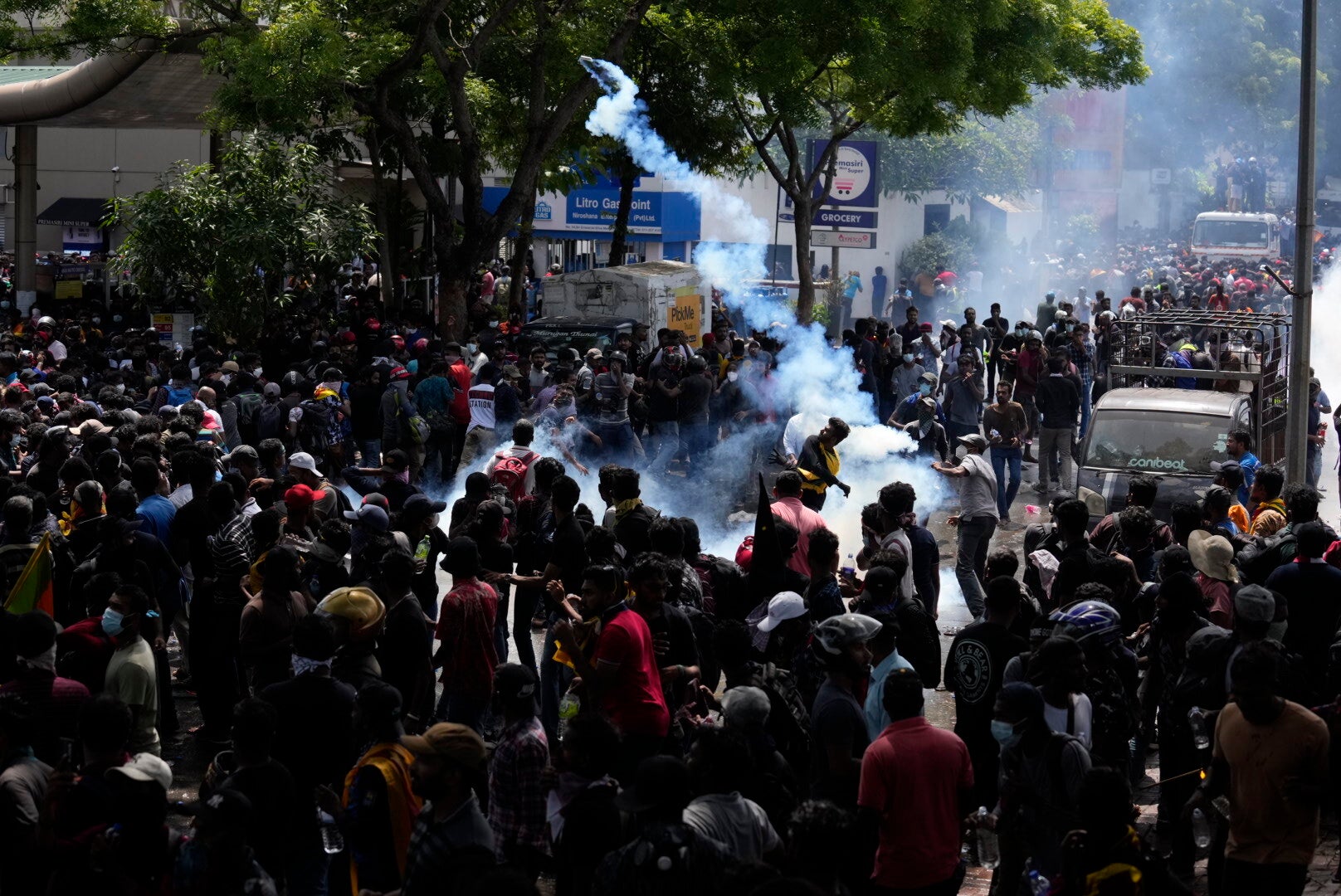Sri Lanka imposes overnight curfew to ‘restore order’ after historic day sees president flee country
Latest reports claim Gotabaya Rajapaksa has flown to Singapore
Sri Lanka imposed an overnight curfew with the acting president and prime minister calling on the military to “do whatever is necessary to restore order” after President Gotabaya Rajapaksa was forced to flee the country with his wife and bodyguards following historic protests.
Ranil Wickremesinghe said the move was necessary and came after he declared a state of emergency. The curfew will last until 05:00 local time.
It came after a tumultuous and historic day which saw Mr Rajapaksa escape in a Sri Lankan air force plane. He first landed in the Maldives’ capital, Male with his family and bodyguards. It was later reported that he had flown on to Singapore. He has promised to resign.
It was earlier reported that he had missed “four flights” at Colombo’s international airport the previous day, when immigration staff refused to go to the VIP suite to stamp his passport to allow him to fly to the United Arab Emirates.
Protesters on Wednesday marched to the prime minister’s office, following the news of Mr Rajapaksa fleeing, asking him to resign.
Mr Wickremesinghe said he would step down on Saturday, when protesters stormed the presidential palace, but has now said he will serve as president until a replacement is chosen.
In his first televised address since Mr Rajapaksa fled, the prime minister claimed there was a “fascist threat” to democracy in Sri Lanka and vowed to restore normalcy.
“We must end this fascist threat to democracy. We can’t allow the destruction of state property. The president’s office, the president’s secretariat and the prime minister’s official residence must be returned to proper custody,” he said.
“Those who are in my office want to stop me from discharging my responsibilities as acting president. We can’t let them tear up our constitution. We can’t allow fascists to take over. Some mainstream politicians too seem to be supporting these extremists. That is why I declared a nationwide emergency and a curfew,” he said.
The address came after thousands of protesters stormed Mr Wickremesinghe’s office on Wednesday, after seizing other government buildings in recent days.
Groups could be seen scaling the wall and entering the office as crowds roared in support, cheering them on and waving the Sri Lankan flag. Police used tear gas to try to disperse the crowd but failed, and more and more marched towards the office.

Among the affected buildings was the headquarters of Sri Lanka’s state-owned television network, Rupavahini, which briefly suspended its broadcast after protesters entered the TV station. The telecast resumed later.
Meanwhile, Sri Lanka’s parliament speaker Mahinda Yapa Abeywardena on Wednesday said Mr Rajapaksa had informed him during a phone call that he will resign today as promised. He also said that in Mr Rajapaksa’s absence, he has authorised the prime minister to carry out presidential duties.
Mr Rajapaksa had earlier announced he would resign on Wednesday after the presidential palace in Colombo was stormed by angry protesters who were seen rummaging through the kitchen and jumping into the pool of the lavish residence.
Protesters continued to remain there after three days and more were seen arriving on Wednesday morning.
They have also burned the prime minister’s private home as anger continued to grow against the Rajapaksa family which has ruled Sri Lanka for most of the past two decades. Protesters have squarely blamed the family for the country’s biggest economic crisis since its independence.
As the economy plunged and protesters came to the streets demanding basics such as fuel and electricity, the powerful political dynasty’s removal from many official posts has remained central to the demands. Sri Lankans wanted them to take responsibility for bringing the country to this state.
Experts said Sri Lanka’s economic crisis is the result of several factors, including global inflation and handling of the economy over the decades.
Mr Rajapaksa had clung on to power even as his younger brothers Mahinda and Basil had resigned earlier in May and June as prime minister and finance minister respectively, following months of unrest.
His decision to finally step down after the storming of his house had come as a welcome step as protesters sought a complete overhaul of Sri Lanka’s political system.
But there is currently no end to the crisis in sight. Protesters have vowed to occupy the official buildings until the top leaders are gone.
Sri Lankan presidents are protected from arrest while in power and it is likely Mr Rajapaksa planned his escape while he still had constitutional immunity.
Meanwhile, Sri Lankan lawmakers have agreed to elect a new president next week but struggled to decide on the make-up of a new government to lift the bankrupt country out of economic and political collapse.
The new president will serve the remainder of Mr Rajapaksa’s term which ends in 2024, and could potentially appoint a new prime minister, who would then have to be approved by parliament.
Additional reporting by agencies
Join our commenting forum
Join thought-provoking conversations, follow other Independent readers and see their replies
Comments
Bookmark popover
Removed from bookmarks